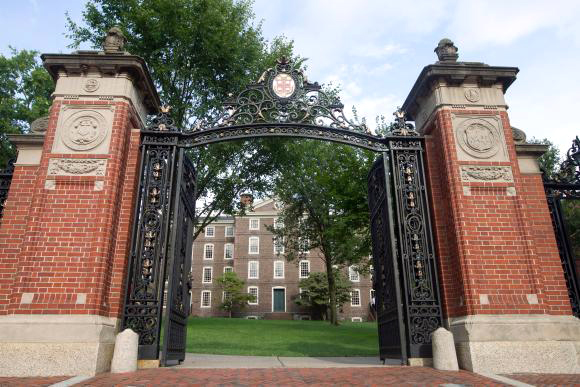
PROVIDENCE – More than 100 pages of Brown University internal emails were publicly released Thursday as part of ongoing litigation related to a settlement agreement pertaining to gender equality in the university’s athletic programs.
Public Justice and the American Civil Liberties Union of Rhode Island filed a motion in late June in U.S. District Court alleging that the Ivy League university is violating a 1998 consent agreement related to Title IX when Brown announced that it will cut five women’s sports programs, while only eliminating three men’s teams, causing a disproportionate impact on women athlete’s representation at the university.
The documents were made public by a discovery request by the ACLU of Rhode Island and Public Justice, which brought the original suit that resulted in the university’s consent agreement.
Per the agreement, if Brown eliminates any women’s sports program, it must offer women and men student-athletes athletic opportunities that is within 2.25% points of women’s and men’s undergraduate enrollment rates, Public Justice and RIACLU said. Such a measure would not be met with Brown’s proposed athletic cuts, the entities noted.
According to the documents, Brown officials allegedly expressed wished to “kill this pestilential thing,” referring to the consent agreement and preferred to make a dispute over the settlement in lieu of complying with the agreement’s terms. Emails show multiple proposals were discussed by Brown officials on how to address the cuts, and Brown Chancellor Samuel Mencoff, according to the entities, suggested knowingly violating the decree as a way to challenge it in court.
“Could we use this moment, where anger and frustration, especially from track and squash, are intense and building to go after the Consent Decree once and for all? Could we channel all this emotion away from anger at Brown to anger at the court and kill this pestilential thing?”, Mencoff asked in an email June 4 to Brown Director of Athletics Jack Hayes. “The argument would be that the Consent Decree is forcing us to eliminate these sports, and the court would then be bombarded with e-mails and calls as we are now.”
Public Justice and RIACLU allege that Brown’s ultimate goal, per the emails, was to “pit support” for the canceled men’s track and field and cross country teams, “which include large numbers of Black athletes,” against women athletes and the court.
Arthur Bryant, attorney for Bailey & Glasser LLP, the women’s co-counsel and counsel in the original suit along with Leslie Brueckner of Public Justice, said Thursday in a statement that Brown’s alleged attempt to turn anger over the mistreatment of Black athletes against women athletes, Title IX and the court “outrageous” and that the university “should be ashamed of itself.”
“That is not how a responsible – or respectable – institution acts,” Bryant said. “Brown should be keeping its agreement to follow Title IX and provide gender equity, not trying to, as Brown put it, ‘kill this pestilential thing.’”
“We proved Brown was violating Title IX over 25 years ago when it cut two thriving women’s teams for crass budgetary reasons,” Brueckner said. “This time around Brown doesn’t even have that excuse. We are going to keep fighting for these female athletes for as long as it takes.”
RIACLU Executive Director Steven Brown said in a statement that Brown’s “clear distain” for promoting gender equality within its athletic program is “deeply disappointing.”
Brown refuted the ACLU of Rhode Island and Public Justice’s framing of its internal emails.
In a statement sent to Providence Business News Thursday, the university said, “When neither the facts nor the law support their case, a party to a litigation sometimes resorts to rhetoric and invective. Today’s press release and accompanying documents in Cohen v. Brown exemplify that unfortunate approach, reflecting the continued efforts by plaintiffs’ counsel to use snippets from documents taken out of context to develop a public narrative in lieu of a viable legal claim.”
“Brown has an exemplary record of providing varsity athletic opportunities to women, with a record that stands near the top among its peers,” the university continued. “For decades, the University has met its obligations under Cohen [vs. Brown] – an agreement that established requirements not faced by any other institution of higher education in the country – annually reporting to the plaintiffs’ attorneys about compliance. At no time has anyone raised doubt about Brown’s commitment to complying with Title IX.”
Brown also said that its varsity sports changes still comply with the agreement and the university would still be in compliance if those teams were able to compete in the fall.
“We remain confident that the federal court judge, who, unlike plaintiffs, will apply the language of the consent decree and basic principles of contract law, will agree,” Brown said.
James Bessette is the PBN special projects editor, and also covers the nonprofit and education sectors. You may reach him at Bessette@PBN.com. You may also follow him on Twitter at @James_Bessette.
This story has been updated to include comments from Brown University.












